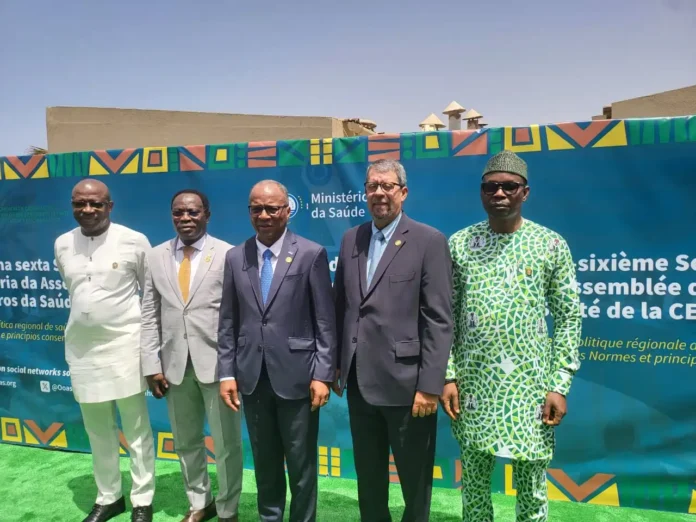BY DAVID ADUGE-ANI
Nigeria’s Minister of State for Health and Social Welfare, Dr. Iziaq Adekunle Salako, has called for bold political action, deeper regional collaboration, and a shift toward community-driven healthcare systems to address escalating public health challenges across West Africa.
Speaking at the 26th Ordinary Session of the ECOWAS Assembly of Health Ministers in Praia, Cape Verde, Salako stressed the urgency of confronting systemic weaknesses such as high maternal and child mortality, unequal access to healthcare, and the mass migration of health workers to Europe and North America.
“This Assembly comes at a crucial time,” he said. “Our systems are under strain. Yet, amid these challenges, there are opportunities to rethink, reimagine, and reinvigorate our healthcare systems.”
The minister spotlighted this year’s theme: “Community Health Principles and Standards”, as a timely to the Alma-Ata Declaration of 1978, urging a renewed commitment to equitable, people-centred primary healthcare.
He outlined Nigeria’s reforms under President Bola Ahmed Tinubu’s Renewed Hope Agenda, including the Nigerian Health Sector Renewal Investment Initiative (NHSRII), which aims to revitalize 17,000 Primary Health Centres by 2027. Already, nearly 50,000 frontline health workers have been trained, with plans to scale up to 120,000.
In a major policy shift, Salako announced the allocation of $200 million in domestic funding to sustain HIV, TB, and malaria programs amid waning international donor support. He also unveiled a Presidential Executive Order to boost local pharmaceutical production by removing tariffs on medical inputs.
“Health is not just a national issue; it is regional and global,” he said. “As COVID-19 taught us—if everyone is not safe, then no one is safe.”
He reaffirmed Nigeria’s commitment to ECOWAS Vision 2050 and praised the country’s recent policy granting financial autonomy to Local Governments as a key step toward improving primary healthcare governance.

